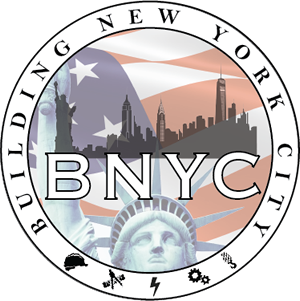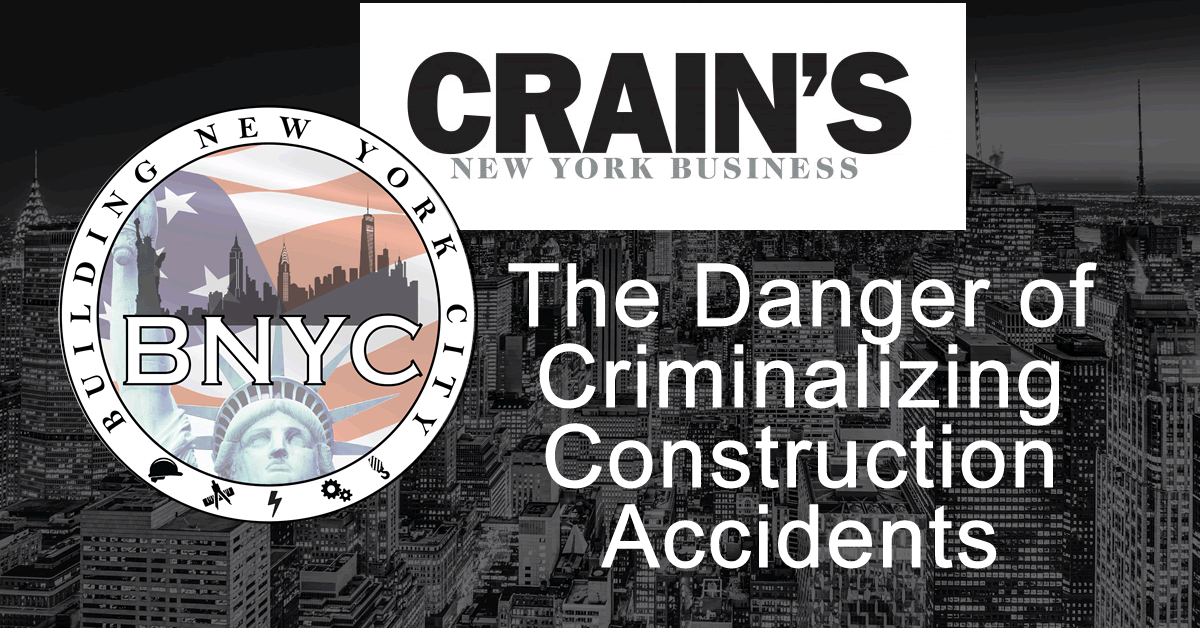From Crain’s New York Business
By Brad Gerstman
The conviction this month of Harco Construction of severe criminal charges sets a dangerous precedent that could put everyone working in the construction industry—union and nonunion alike—in grave danger.
In the case, much emphasis was placed on the conduct of the contractor, but whether or not Harco was a “bad actor,” the criminalization of construction accidents will have a profound effect on all contractors and subcontractors regardless of their history or character.
In fact, the focus on Harco’s alleged misdeeds only exacerbates the slippery slope that Manhattan District Attorney Cyrus Vance has created. If a prosecutor can criminalize Harco’s behavior in the death of Carlos Moncayo, a prosecutor can bring criminal charges against any contractor or subcontractor. The district attorney has not only created an overreaching strict liability standard, but has also upended the applicable criminal statute.
If this precedent is left standing, whenever there is a fatality, the general contractor will be held liable in almost every conceivable circumstance.
In the Harco case, the court ruled—contrary to the law—that the company was liable even though it didn’t have a “high management agent” at the job site, as is legally required for criminal liability.
In the past, the issue of criminal liability has been difficult to prove in court because of the nature of the industry itself. As the Wall Street Journal wrote, “Criminal convictions can be challenging in construction accidents. Many possible conditions can be linked to an incident, and blame can be shifted to errors in oversight and city regulations.”
Construction is one of the most dangerous industries for workers in America. Some 806 of the 4,175 worker fatalities in 2012 were in construction.
Now, however, with the court’s use of a perverted version of strict liability, the inherent danger of the industry will no longer have any legal significance.
Once prosecutors become an intimate part of enforcing construction safety, the collusion of regulators and the criminal-justice system will leave contractors and subcontractors virtually defenseless. With the threat of prosecution hanging over a company, regulators will have leverage to enforce the most draconian settlements as firms seek to avoid the hardships of prosecution.
When the floodgates to criminal prosecution are opened wide, even an acquittal might not save a company because it is the process—with its expense and cost to a company’s goodwill—that is the punishment.
Let’s make the industry safer for the men and women who working in it, not use tragedy to score cheap political points. And let’s also make sure that the heavy hand of the criminal justice system doesn’t deprive conscientious and upstanding contractors of their rights and livelihoods by turning all construction accidents into potential criminal prosecutions.
Brad Gerstman is an attorney, lobbyist and communications specialist, and a spokesman for Building NYC.
Read more from Crain’s New York Business…


